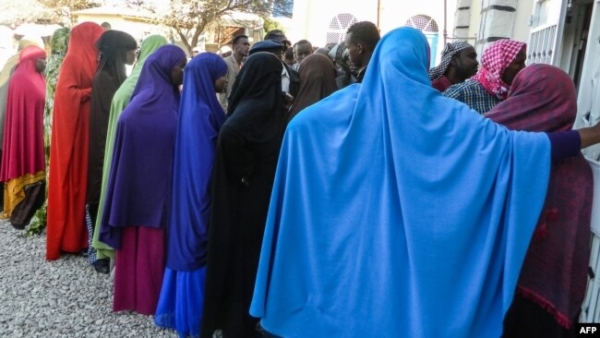Overview
Somalia maintains general criminal provisions which have the potential to criminalise both intentional and reckless transmission of HIV. Additionally, Somalian law provides for sentence enhancements for some offences which result in the transmission of HIV.
Article 440 of the Penal Code criminalises the infliction of “hurt” from which physical or mental illness results, which carries a penalty of three months to three years’ imprisonment. The third paragraph of this Article states that where an incurable illness is caused the harm is considered very grievous, and the penalty is increased to six to twelve years’ imprisonment.
Article 441 states that where the acts committed under Article 440 result in death, the defendant is liable for imprisonment for ten to fifteen years.
Article 446 criminalises the negligent infliction of harm, as defined under Article 440. “Very grievous” harm such as that under Article 440 carries a penalty of three months to two years’ imprisonment or a fine.
The Rape and Sexual Offences Act (No. 78/2018) contains sentence enhancements for particular offences where HIV is transmitted. Under Article 4 of this law, the punishment for rape is increased form the base level of fifteen to twenty years to life imprisonment of HIV is transmitted. The same enhanced sentence is imposed under Article 5 for rape as part of an organised group if HIV is transmitted.
In 2014 Somalia introduced Law No. 67 of 2014 on the Establishment of the National Commission for the Control of HIV/AIDS, however, this law does not appear to impose any additional duties for people living with HIV.
In 2018 the self-declared independent Parliament of Somaliland also passed a bill criminalising rape and sexual offences, which similarly imposes a penalty of life imprisonment for rape resulting in transmission of HIV. Somaliland is a self-declared state which has failed to gain recognition and is considered part of Somalia by the international community.
There has been at least one case of criminalisation of HIV transmission in Somalia.
In 2017 it was reported that a woman had been arrested following accusations that she had transmitted HIV to several men. The woman was subjected to an HIV test, the result of which was positive. The outcome of this case is not known.
Laws
Penal Code
Article 440. Hurt
1. Whoever causes hurt to another from which physical or mental illness results, shall be punished with imprisonment [96 P.C.] from three months to three years.
2. The hurt shall be deemed to be grievous and imprisonment [96 P.c.] from three to seven years shall be imposed:
a) where the act results in an illness which endangers the life of the person injured, or in an illness or incapacity which prevents him from attending to his ordinary occupation for a period exceeding forty days;
b) where the act produces a permanent weakening of a sense or organ;
c) where the party injured is a pregnant woman and the act results in the acceleration of the birth.
3. The hurt shall be deemed to be very grievous, and imprisonment [96 P.C.] from six a to twelve years shall be imposed, where the act results in:
a) an illness certainly or probably incurable;
b) the loss of a sense;
c) the loss of a limb, or a mutilation which renders the limb useless, or the loss of the use of an organ or of the capacity to procreate, or a permanent and serious difficulty in speech;
d) deformity, or the permanent disfigurement of the face; e) the miscarriage of the person injured.
Article 441. Preterintentional Homicide
Whoever, with acts directed to commit one of the crimes referred to in articles 439 and 440, causes the death of another; shall be punished with imprisonment; from ten to fifteen years [96P.C.].
Article 446. Hurt caused by Negligence
1. Whoever by culpable negligence [24′ c P.C.] causes hurt [440 P.C.] to another shall be punished with imprisonment [96 P.C.] up to three months or fine [97 P.C.] up to Sh. So. 5,000.
2. Where the hurt is grievous [440′ P.C.], the punishment shall be imprisonment [96 P.C.] from one to six months or fine from Sh. So. 2,000 to 10,000; where it is very grievous [440′ P.C.], imprisonment [96 P.C.] shall be from three months to two years or fine [97 P.C.] from Sh. So. 5,000 to 20,000.
3. In the case of hurt [440 P.C.] to more than one person, the provisions of article 44 shall apply, but the punishment of imprisonment [96 P.C.] shall not exceed, in the aggregate, five years.
4. In the case referred to in the first paragraph of this article, the offender shall be punished on the complant of the party injured [81 P.C.].
Rape and Sexual Offences Law (Law No. 78/2018)
Article 4. Rape
(…)
(3) A person who commits a criminal offense under the first paragraph of this article shall be liable to life imprisonment if:
a) the defendant inflicts irreversible emotional or physical harm to the victim; or
b) be the cause of the crime by the victim being infected with HIV.
4) Anyone attempting to commit a criminal offense shall be liable to a prison term of four to seven years.
Article 5. Sexual Abuse
(1) Every person who commits a crime of rape as a member of an organized group, commits a rape and is subject to a prison sentence of between twenty-five years.
(2) If the accused person commits a crime a person who is 15 years of age or younger will be liable to a prison sentence of between three and twenty-eight years.
(3) A person who commits an act of sexual assault shall be liable to life imprisonment, if
a) The defendant has caused the victim no emotional or physical injury; or
b) The crime was caused by the victim having AIDS
(4) A person attempting to commit a sexual assault shall be subject to a prison sentence of five to seven years.’
Acknowledgements
Our thanks to Australian law firm Hall & Wilcox for their research assistance to confirm current relevant legislation.
HIV Justice Network's Positive Destinations
Visit the Somalia page on Positive Destinations for information on regulations that restrict entry, stay, and residency based on HIV-positive status, as well as access to HIV treatment for non-nationals.

